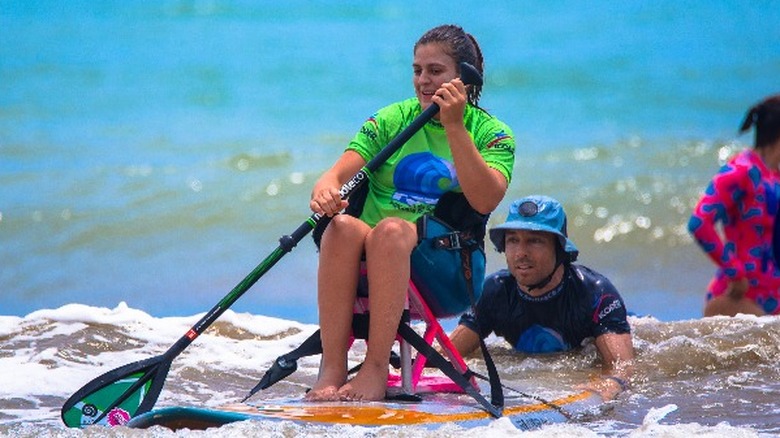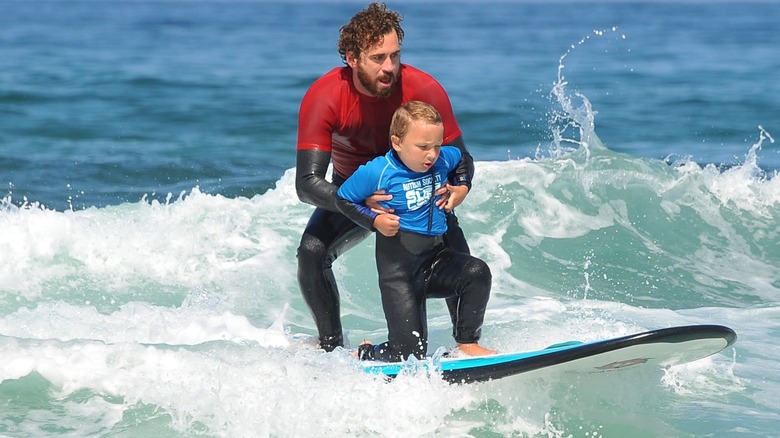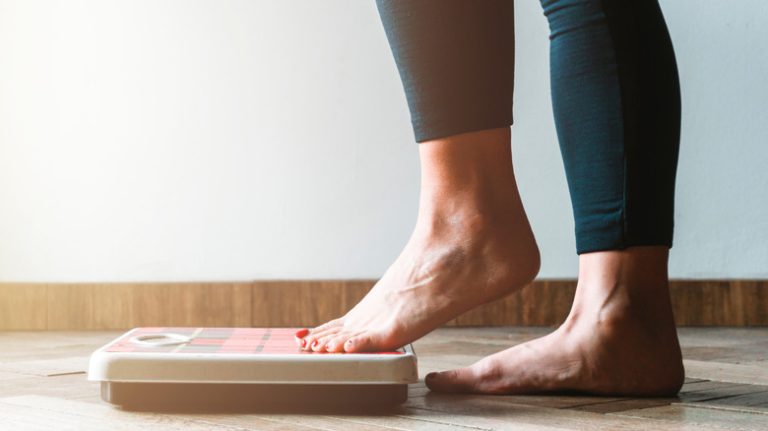Mental health issues are a widespread problem. The first year of the COVID pandemic reportedly increased the prevalence of anxiety and depression globally by 25% (via World Health Organization). To further compound the issue, mental health services were disrupted at the same time. Although access has since improved, many people still search for other ways to cope with mental health issues — but what are these alternatives?
According to the Mayo Clinic, exercise may be a way to reduce symptoms of mental health issues like anxiety and depression because of its positive effects on the body and mind. Beyond exercise, a growing body of evidence shows that time spent near the ocean may improve the well-being of the body and mind (per The Guardian). A relatively new intervention called surf therapy aims to combine exercise and blue spaces to create a novel experience to improve your mental health. Here’s everything you need to know about surf therapy and whether you can actually surf your way to a better you.
The potential benefits of surf therapy

According to a 2024 study published in the International Journal of Environmental Research and Public Health, surf therapy is a structured mental health intervention, typically provided by non-profits and charities. In order to get started, you may need a referral from a healthcare professional. The surf therapy program may provide all of the necessary equipment, safety instructions and supervision, and of course, the surf lesson. Notably, the researchers mention that those experiencing “handicaps, impairments, or disabilities” may need modified surf gear or adaptive surfboards. Surf therapy programs usually provide bodyboards, modified surfboards, and other necessary equipment to help those in need access the surf in a safe and fun way.
MedicalNewsToday says that surf therapy may help a wide variety of people like children with autism, youth in need of social support, people with mental health issues, people living with physical disabilities, veterans with post-traumatic stress disorder (PTSD), and cancer survivors. Healthline also mentions that surf therapy may help those dealing with chronic pain or a substance abuse disorder. That being said, anyone can benefit from surf therapy. There are many potential benefits, such as the improvement of symptoms related to mental health conditions like anxiety, depression, and PTSD. It also can provide opportunities for people to build social skills, work on problem-solving, and even promote resilience.








